There are toys on the floor. Little shoes by the door. The sound of “Curious George” playing on the morning TV.
Kids from the orphanage are at the house in America.
And life is not the same.
Our monthly visits to Port-au-Prince are all-encompassing. From the moment the heat and humidity hit our skin, we are in Haiti-mode, all things are about the kids, the facilities, the water, the generator, the school, the devotions. Our American life is put on hold until the plane touches back down in Michigan.
But when children return with us, Haiti comes with us as well. This started when we brought Chika north for brain surgery seven years ago. It continued when we started bringing Knox four years ago for physical therapy. It got intense when Babu came in 2019 for an operation, and Gaelson was rushed here needing a lung removal and an esophagus repair.
Now, a new arrival has brought the sounds of Haiti to our Michigan mornings. Her name is Fedyana, her nickname is “Ziggy”, she is five years old, missing her two front teeth, and, in sudden news to us, has a brain issue.
We began noticing something wrong just weeks after she came to us from a village outside the coastal town of Mirogoâne. Her gait was a little off. Her left hand curled a bit. She pulled at it like someone trying to tug a rope through a hole.
She cried often, for no reason. She wet the bed constantly. We took her to a neurologist, who ordered a CT scan. The report, in French, came back with a diagnosis.
Hydrocephalus. Water on the brain.
We took a deep breath.
And we went into action.
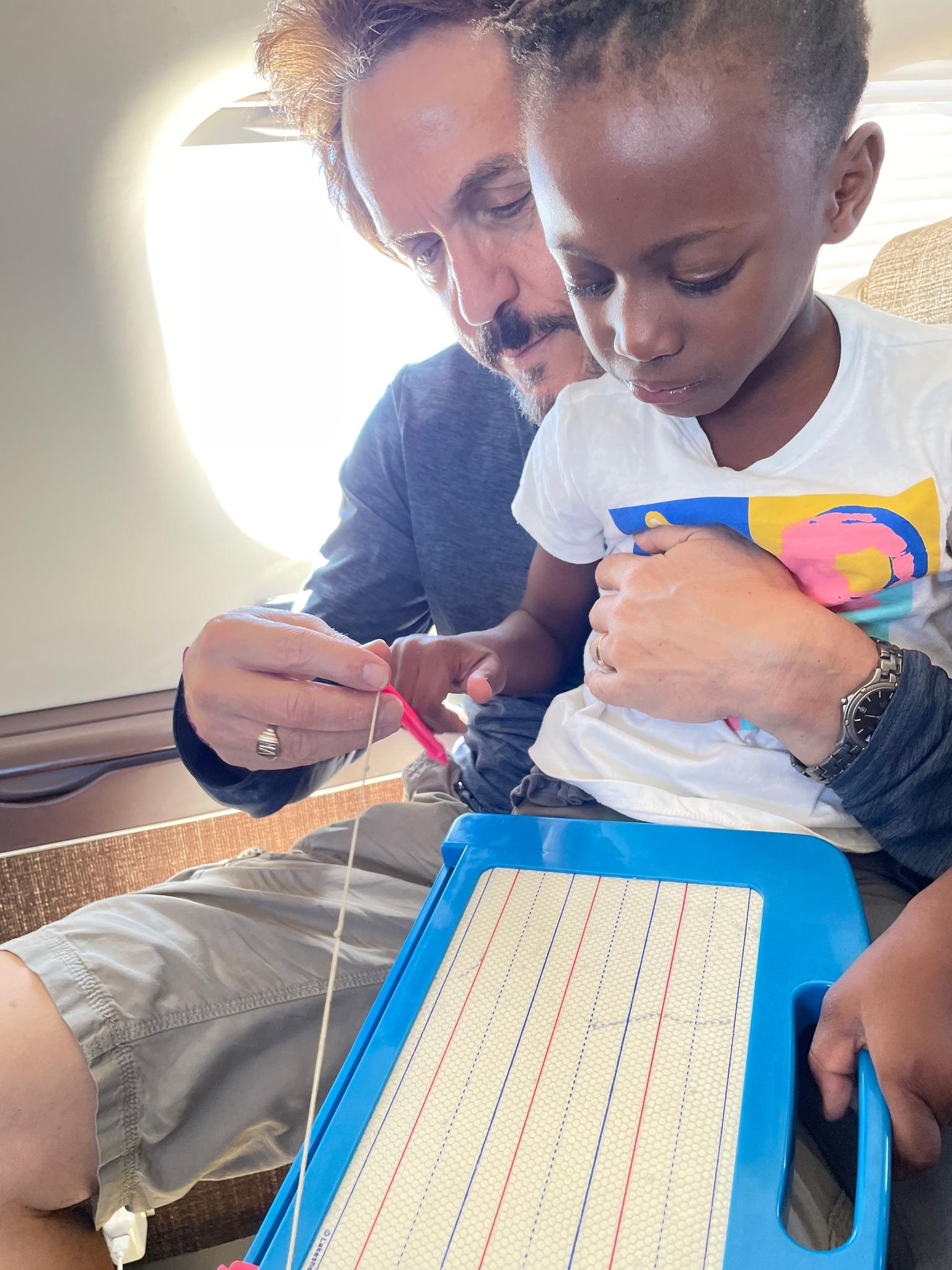
Fedyana practices her letters on the flight to America. |
Not again, and yet, again is inevitable
Now, when you take care of 55 kids, you expect medical issues. The numbers alone make this inevitable. But when you take into account the crippled Haitian health care system, the malnutrition, lack of access to basic services, no prenatal care, no pediatricians, we’re actually surprised we don’t have more issues.
That doesn’t make the ones we do have any easier. We have learned, in 12 years, which kind of problems are solvable through Haitian hospitals and which require a trip to America.
Fedyana, who may need brain surgery, is the latter.
This is never an easy proposition. First, we need to gather paperwork from doctors. Then we need to clear things with the proper Haitian agencies. Then we need to write the American embassy and seek an emergency visa for medical care.
Fortunately, we have found the U.S. embassy in Haiti extremely positive to work with. Their staff understands what we do, and they respond quickly. Previous ambassador Michele Sison and current acting ambassador Kenneth Merten know our orphanage and have met our kids. That goes a long way.
But getting a child through the arrival process is only the start. Then there’s the adjustment to America. Being away from 50 other kids, sleeping in their own room, cold weather, green grass, all these strange people speaking nothing but English — well, you can imagine the disorientation. It’s like waking up on another planet.
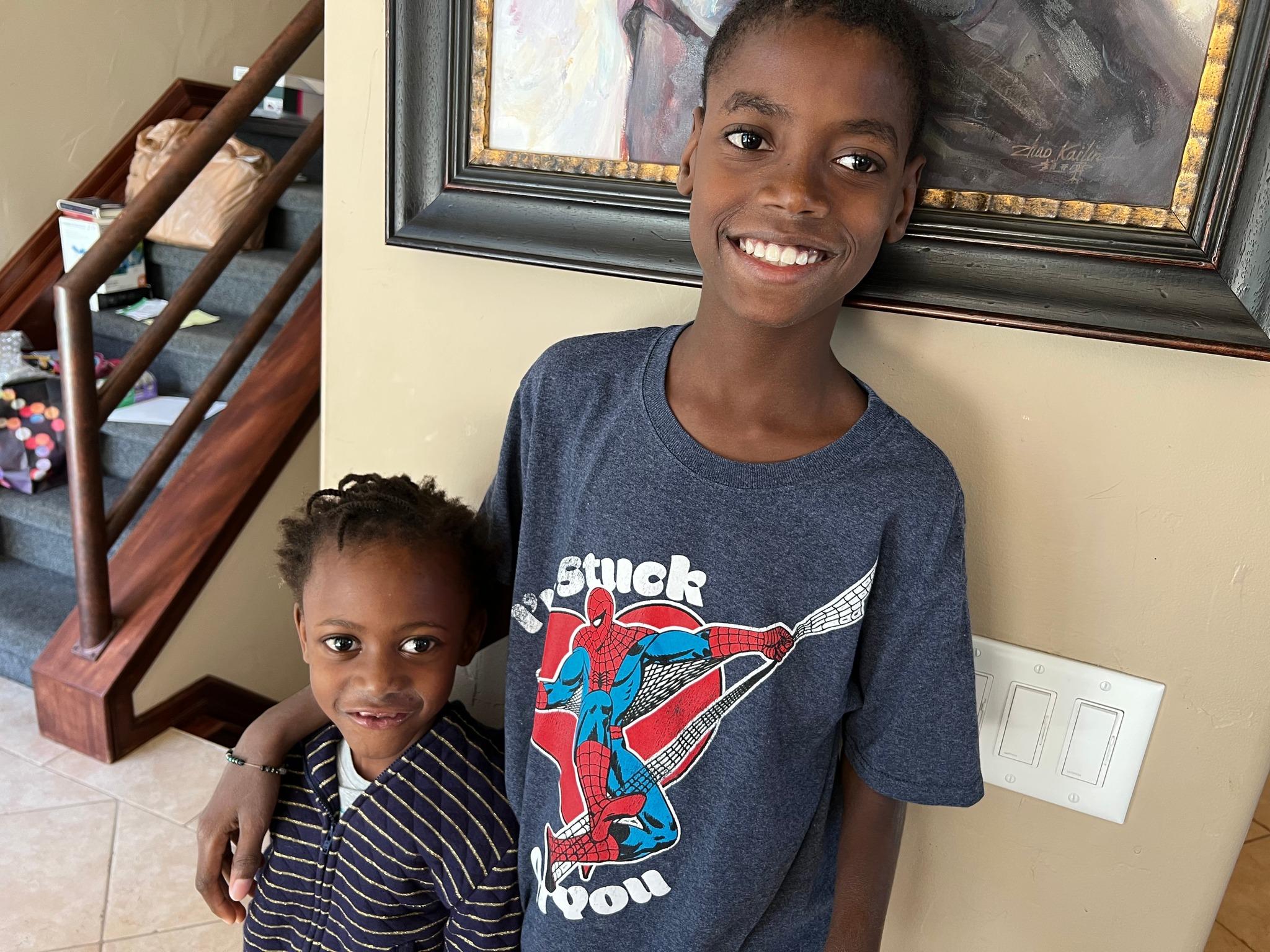
Knox takes Fedyana under his wing in Michigan |
Minding a full nest
Meanwhile, my wife and I — and our friend Connie Vallee, who is indispensable when it comes to our Haitian visitors — all know the routine. Buy the cereal and the milk that we otherwise never have. Stock up on kids’ vitamins, snacks, pull-ups, new shoes. Pull out the story books, make up their beds with colorful blankets. Take anything breakable off of the lower shelves. Prepare for lots of trips to the park and the trampoline place.
And pray. Pray that things work out OK. That doctors won’t come back with the “I’m sorry, we have some bad news” message. Little Ziggy is an incredible joy. Thin and wiry, she bounces around the house making weird sounds, laughing constantly, climbing up my legs and torso, carrying around her beloved pink water bottle, speaking a steady mix of Creole and English.
And our house is transformed. Knox is here as well for his regular therapy sessions, and he has taken on the role of big brother as if he’d been doing it his whole life.
“You have to brush your teeth, Ziggy,” he says.
“You have to pray before you eat.”
“You have to take a shower.”
The last few nights, at 4 a.m. or 5 a.m, Fedyana has been crying. There seems to be no reason. No cause. She is not in pain. Nothing has happened. She cries then she falls asleep, and we wonder, as we hold her, what is going on inside that beautiful little head.
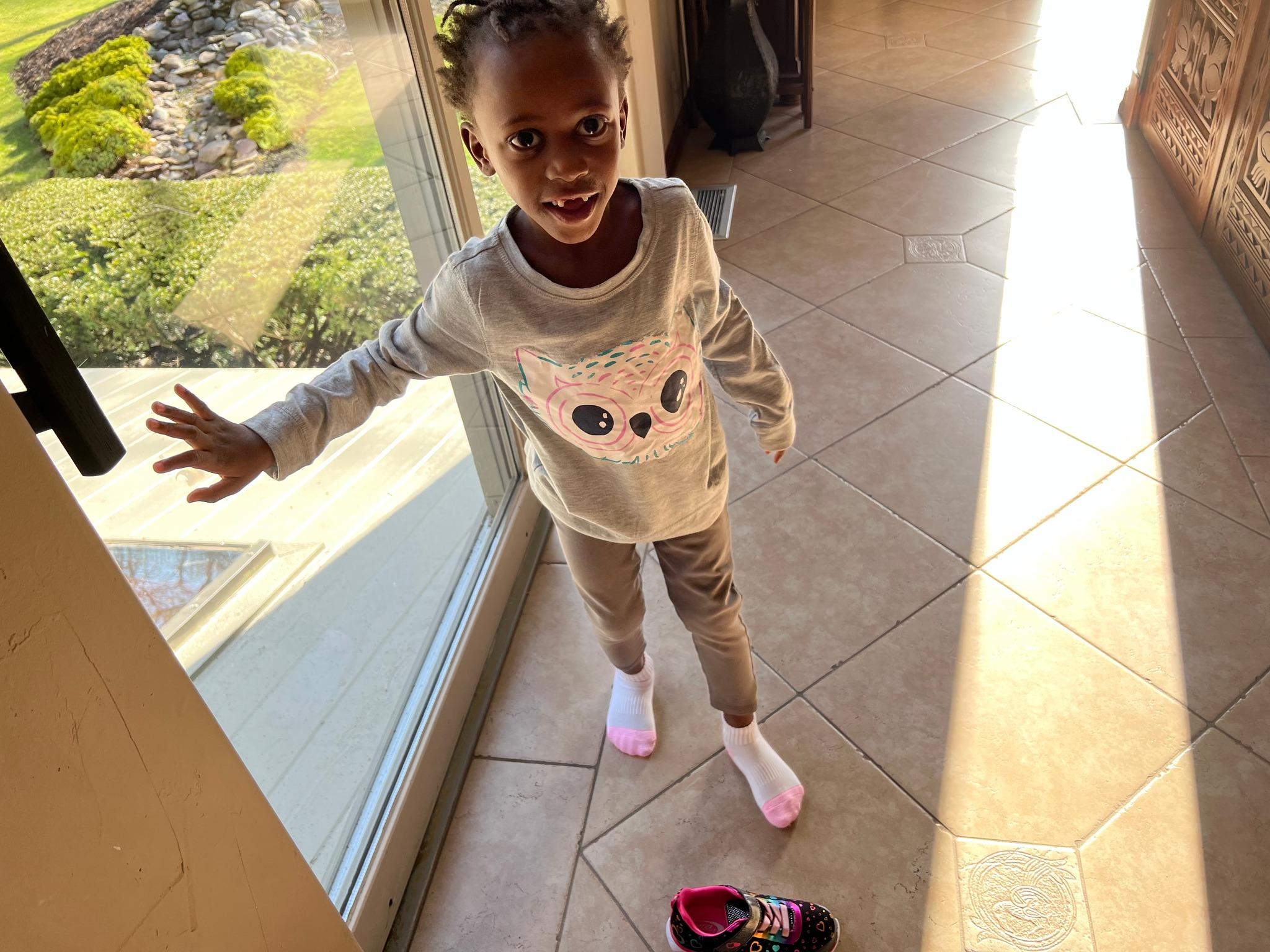 |
Her doctors’ appointments are next week. She’ll have an MRI and a thorough examination, and we will know more about what truly ails her. In the meantime, we adjust to the in-between life, when Haiti is here and the sounds of Creole wake us up in Michigan. We take the deep dive into another medical adventure and pray the happy sounds of the morning will reflect the diagnosis still to come.
____
What readers are saying about “Life at the Orphanage”
I absolutely love reading about the children. I continue to be amazed by their resilience and abilities to overcome adversity. I learn so much about what it means to be content in all our circumstances through the eyes and voices of the children. Thank you for sharing your family with us. I am always anxiously waiting the next issue. – Terry P.
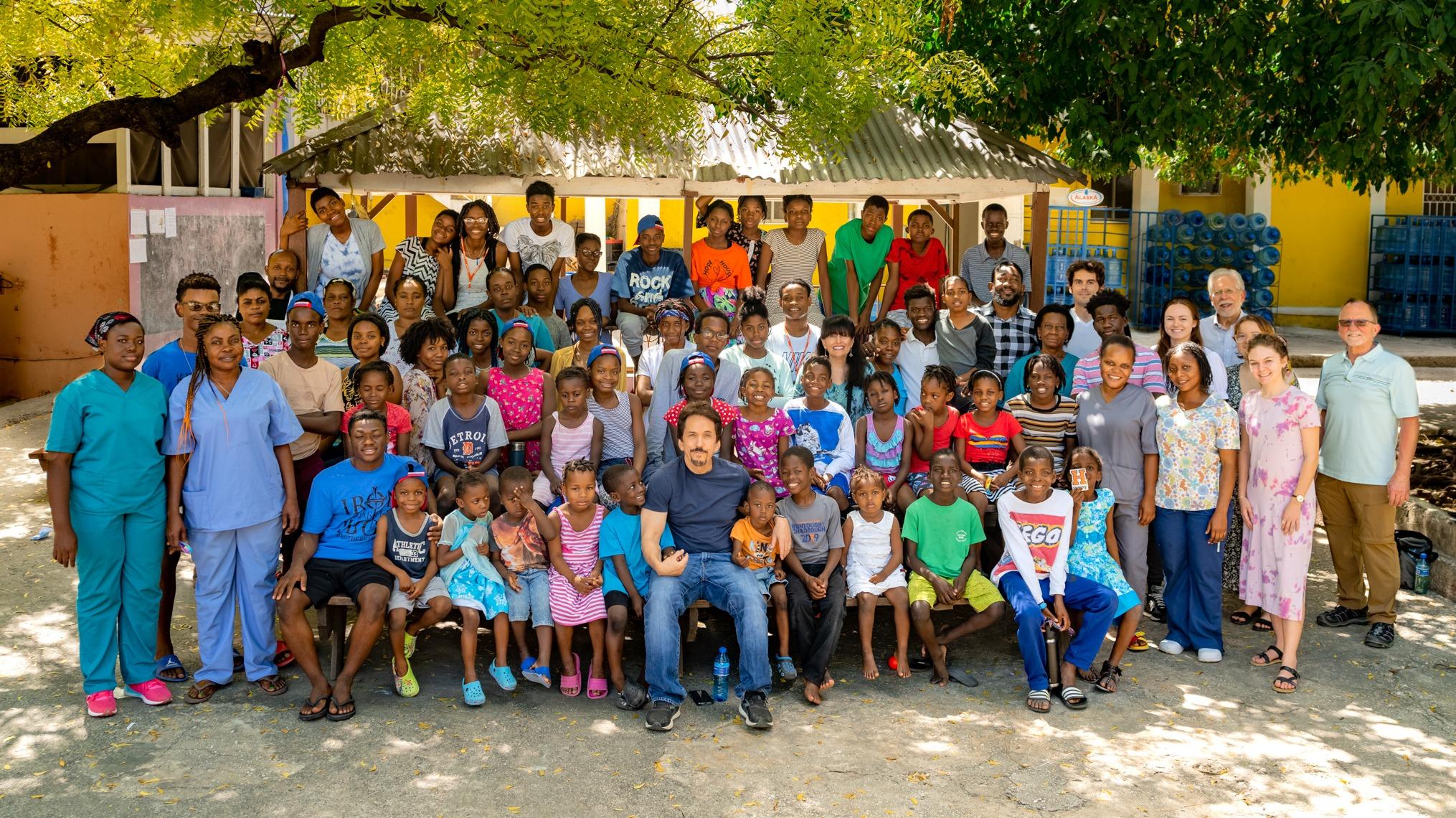
A big, sprawling, wildly different family at the Have Faith Haiti Mission & Orphanage |
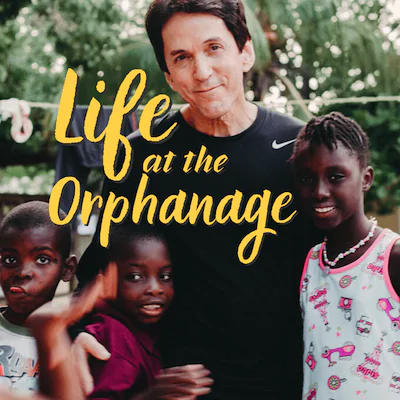
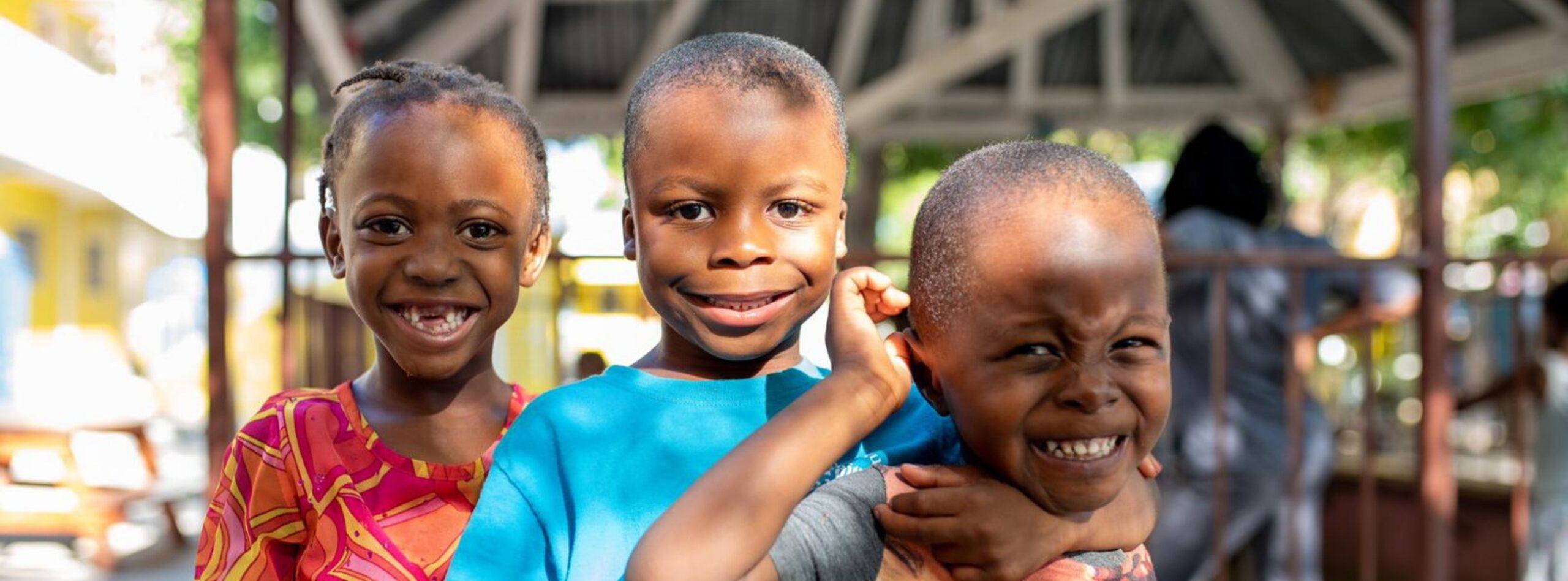
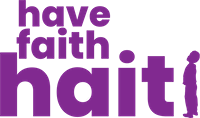
 Join a community of monthly donors
Join a community of monthly donors
0 Comments